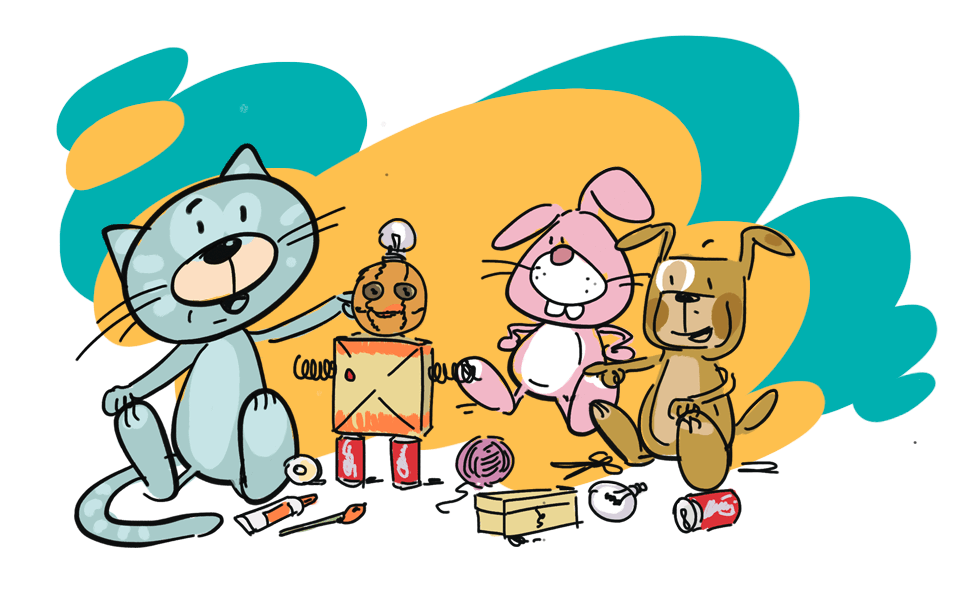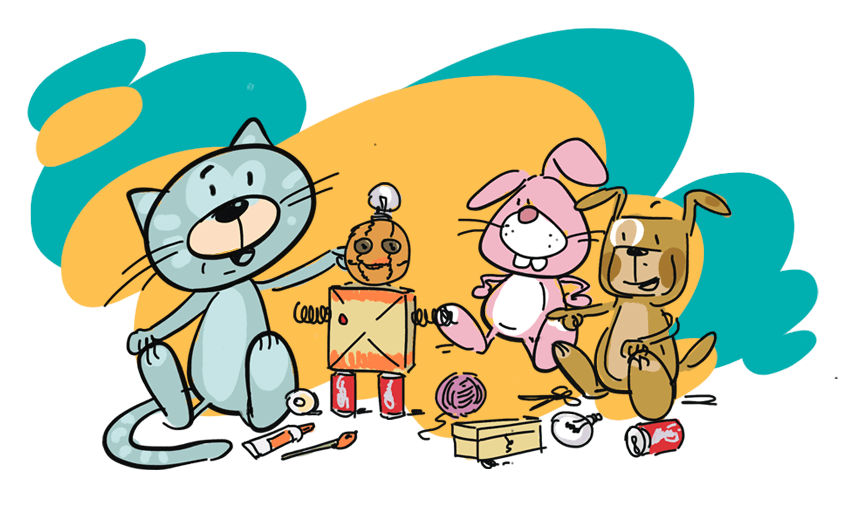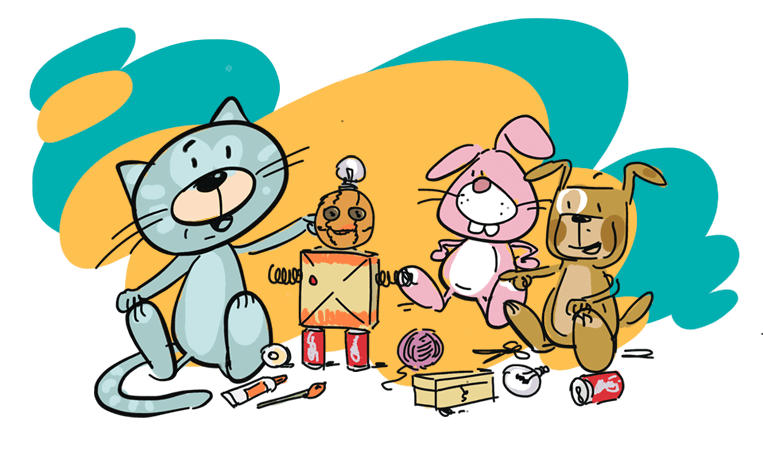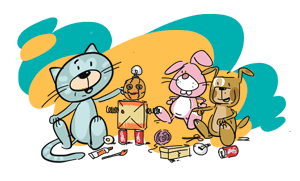Entrepreneurship,
or how to make something from nothing
Goal: understand what entrepreneurship and economy is, developing a creative attitude, ability to cope with stress.




Many parents dream of an enterprising child. In fact an entrepreneur is seen to a person who makes his/her concepts, ideas or intentions become reality; a well-to do owner of a successful business . If you look at programmes concerning entrepreneurship for children of school or older age, you will find that entrepreneurship is usually associated with the economy and/or managing finances.
When we look at people who have large funds at their disposal, we are bound to see that they more in common than just knowledge of economics. Indeed the notion of entrepreneurship may be defined as an attitude, thus something, which it takes months if not years to develop. Small children do not yet have imaginative thinking (e.g. they will not count something in their mind, they must have sticks or blocks), this is why any activities must involve, touching, trying, breaking etc.
Speaking in this context about enterprising persons, you can see a list of soft skills, which make it much easier to be successful in life. Some examples have been shown in the picture (JPG file)link opens in a new window.
Many experts treat entrepreneurship as a prolific and creative activity. I think children will understand this definition and a good exercise to illustrate with specific examples will be “something from nothing”.
Next steps in the experiment i.e. tasks for the child, parent as well as necessary aids are shown in the table below.
| TASK FOR THE CHILD | TASK FOR PARENT | MATERIALS AIDS |
|---|---|---|
| Collecting various unnecessary things during a week. |
|
brak |
| Weekend for the creative, or let’s make something from nothing - making new toys together from the materials gathered. |
|
glue, transparent tape, scissors, string |
| Preparing a presentation of your works before a group of people. | Gathering family and friends, before whom the child will be presenting his/her work. The presentation can also be made online. | brak |
During the experiment note two things. The first of them is to talk to the kid and explain to it that being enterprising is creating new things; an idea to make something from materials, which appear to be useless now. It is about turning ideas in your head into reality. The second important thing is to make sure the kid can present its work and uses for it to a group of people. This situation will allow it to experience various feelings (fear, shame) or physical signals (trembling hands) involved with stress. It is a perfect opportunity to explain to the kid that there is nothing wrong with that and teach it how to handle such a situation (e.g. breathe in, breathe out, look at mum during the presentation, hold the favourite teddy bear in the hand). You can use one of the stories below for that purpose:
- fear of being laughed at: the story “Lisek łakomczuszek” in the book by M. Molicka “Bajki terapeutyczne. Część 1.”
- shyness: the story “Franek na konkursie ryków” available on the www.bajki-zasypianki.pl website
- difficulties with controlling emotions: book by A. Stążka-Gawrysiak „Self-Regulation. Opowieści dla dzieci o tym, jak działać, gdy emocje biorą górę”
- fear of public appearances: the story “Świnka Matylda i występy publiczne” available on the www.bajkowytata.com website (also in audio version, with colouring pages attached).
Developing stress management skills and faith in your own creativity can and should be practised all year round. These are but a few proposals:
- using “refuse” to make Christmas tree decorations, Easter decorations or greeting cards
- giving the kid an opportunity to say a poem, sing a song, show a favourite toy or animal during meetings with family or friends
- having the kid take part in kindergarten contests
- allow it to lose a game to the parent and explain later how to handle the unpleasant feelings
Good luck!
* PARP: Global Entreprenuership Monitor survey report. Poland 2017/18 as well as 2018/19 (access online on the ww.parp.gov.pl website; Eurydice (2016) Entrepreneurship Education at School in Europe. Eurydice report, Published by FRSE.